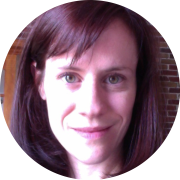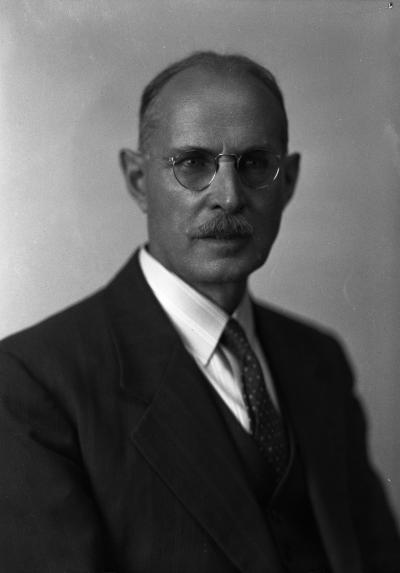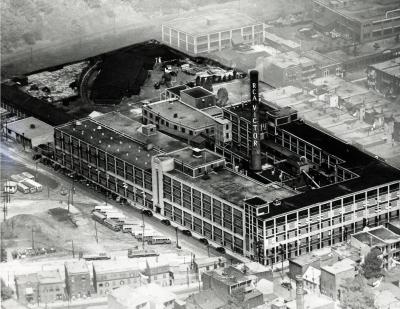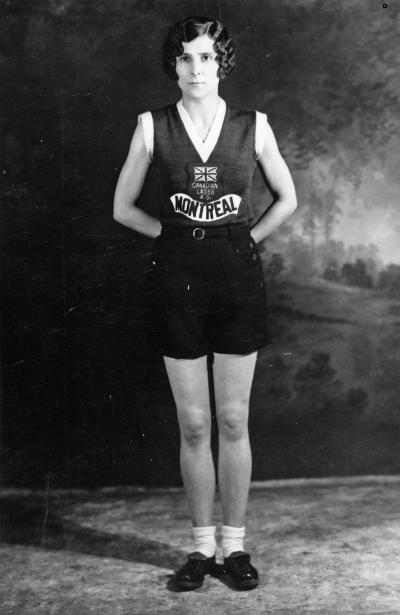The first Maghrebi immigrants settled in Montréal in the 1950s. Forty years later, large numbers of students and asylum seekers from Tunisia, Algeria, and Morocco—known collectively as the Maghreb—followed in their footsteps.
Maghrebi immigrants first arrived in Montréal in small numbers in the 1950s, and then in large waves from the 1990s onward. Today, the Maghrebi community in Montréal is made up mostly of people of Algerian, Tunisian, and Moroccan descent.
A nascent Maghrebi community
Ali Benfaka

In the 1960s, Québec and Canada began to compete with each other for economic, political, and cultural influence in the Maghreb. Expo 67 increased Québec’s visibility in the region. A number of North Africans visited the World’s Fair with official delegations and as tourists, and many were charmed by Montréal. In the years after Expo, Maghrebi students, entrepreneurs, and artists immigrated to the city. Researchers have described this cohort as électrons libres (free electrons); they tended to disperse across the city instead of settling in clusters.
img_2179.jpg
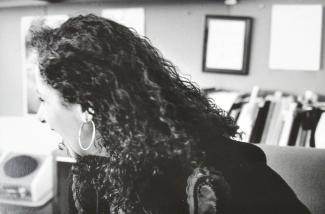
In this period as well, Québec authorities began prioritizing French-speaking immigrants. The policy shift was favourable to prospective emigrants from the Maghreb, whose knowledge of the language promised to facilitate integration. A few decades later, the 2011 census showed that more than 96% of people of Maghrebi origin living in Québec spoke French, with 30.8% of them reporting French as their mother tongue.
The first cohorts of Muslim Maghrebi came to the city in the 1970s. By 1981, the modest Maghrebi community in Québec, mainly settled in Montréal, consisted of about 5,000 people. But in the 1980s, cooperation agreements in the education sector attracted a large number of Algerian students to Montréal and other Québec communities. Political and social instability and the rise of fundamentalism also spurred emigration; in all, about 4,000 Maghrebi arrived in Montréal during the decade.
A massive wave of immigration in the 1990s and 2000s
Maghreb - Hafida
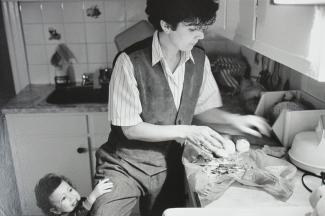
North African immigration to Montréal has intensified since the 1990s and is predominantly Muslim. While Moroccans and Tunisians came in the 1990s to study, Algerian newcomers immigrated under more difficult circumstances. Algeria had become engulfed in conflicts that culminated in a bloody civil war in 1992. In the exodus that followed, large numbers of Algerian asylum seekers arrived in Montréal.
A major cohort of immigrants from the Maghreb chose to live in Montréal in the 2000s. In 2001, the City of Montréal was home to 17,940 Algerians, 25,815 Moroccans, and 5,040 Tunisians, for a total of 48,795. By 2011, this population had increased to 90,630 in the agglomeration of Montréal. But while they had a high level of education and were proficient in French, a Statistics Canada survey showed that 20% of Maghrebi immigrants were unemployed in Québec in 2006.
Opting for Montréal and its suburbs
Maghreb - Coupe du monde
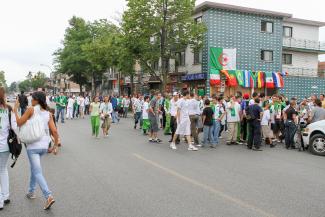
Since 2001, the Maghreb has been the third-largest recruitment pool for immigrants to Québec. The vast majority of Maghrebi immigrants in Québec live in the Montréal area. According to the 2006 census, there were 80,330 people of Maghrebi descent [AJ1] in Québec, of whom 71,945 resided in the Montréal census metropolitan area, a region including the island of Montréal and its surrounding suburbs. The City of Montréal was home to 51,490 people of Maghrebi descent.
The Maghrebi presence was distributed across several Montréal neighbourhoods in 2011: 56.2% of Montrealers of Maghrebi descent resided in Ahuntsic-Cartierville, Côte-des-Neiges—NDG, Saint-Laurent, Saint-Léonard, and Villeray—Saint-Michel—Parc Extension. Moroccan Montrealers were more numerous in Côte-des-Neiges, but they also lived in Saint-Laurent, Saint-Léonard, and Montréal Nord, while Algerian Montrealers were clustered in the Ahuntsic-Cartierville sector and Saint-Michel.
The Imazighen (plural of Amazigh, meaning “free”)—also referred to as Berbers—are the indigenous peoples of the Maghreb. This large group is divided into numerous sub-groups, according to national territory of birth. Originating in more than a dozen African countries, these groups together occupy a territory so vast that historically they had little contact with one another. This accounts for the many variants of the Tamazight language. In 2006, Québec was home to 13,415 people of Amazigh origin, primarily Kabyles from Algeria and Imazighen from Morocco. Of these, 4,160 people reported Tamazight as their mother tongue. A number of Kabyle and Amazigh associations exist in Montréal.
AZDOUZ, Rachida. « Les Québécois d’origine maghrébine, entre bricolage, affirmation et reconstruction identitaire », Histoire d’immigrations au Québec, Québec, Presses de l’Université de Québec, 2014, p. 233-250.
COHEN, Yolande. « Les Juifs sépharades à Montréal », Histoire d’immigrations au Québec, Québec, Presses de l’Université de Québec, 2014, p. 95-110.
BERDUGO-COHEN, Marie, Yolande COHEN et Joseph LÉVY. Juifs marocains à Montréal. Témoignages d’une immigration moderne, Montréal, VLB Éditeurs, 1987, 209 pages.
CAMARASA-BELLAUBE, Marion. La Méditerranée sur les rives du Saint-Laurent, Une histoire des Algériens au Canada, Paris, Publibook, 2010, 224 pages.
DELEUZE, Magali. « Le Maghreb à l’expo 67 (Tunisie, Maroc, Algérie) », dans Bulletin d’histoire politique, vol. 17, n° 1. [En ligne].
http://www.bulletinhistoirepolitique.org/le-bulletin/numeros-precedents/...
MANAI, Bochra. La « Mise en scène » de l’ethnicité maghrébine à Montréal, Thèse (Ph. D.), [En ligne], Montréal, Institut national de la recherche scientifique (INRS), 2015, 313 pages. (Consulté le 21 juillet 2016).
http://espace.inrs.ca/3313/
GOUVERNEMENT DU QUÉBEC. MINISTÈRE DE L’IMMIGRATION ET DES COMMUNAUTÉS CULTURELLES, DIRECTION DE LA RECHERCHE ET DE L’ANALYSE PROSPECTIVE DU QUÉBEC. Portrait statistique de la population d’origine ethnique maghrébine recensée au Québec en 2011, [En ligne], 2010.
http://www.quebecinterculturel.gouv.qc.ca/publications/fr/diversite-ethn...
GOUVERNEMENT DU QUÉBEC. MINISTÈRE DE L’IMMIGRATION ET DES COMMUNAUTÉS CULTURELLES, DIRECTION DE LA RECHERCHE ET DE L’ANALYSE PROSPECTIVE DU QUÉBEC. Portrait statistique de la population d’origine ethnique maghrébine recensée au Québec en 2006, [En ligne], 2010.
http://www.quebecinterculturel.gouv.qc.ca/publications/fr/diversite-ethn...
GOUVERNEMENT DU QUÉBEC. MINISTÈRE DE L’IMMIGRATION ET DES COMMUNAUTÉS CULTURELLES, DIRECTION DE LA RECHERCHE ET DE L’ANALYSE PROSPECTIVE DU QUÉBEC. Portrait statistique de la population d’origine ethnique berbère recensée au Québec en 2006, [En ligne], 2010.
http://www.quebecinterculturel.gouv.qc.ca/publications/fr/diversite-ethn...
VILLE DE MONTRÉAL. Annuaire statistique. Agglomération de Montréal. Recensement de 2011– Enquête nationale auprès des ménages de 2011, [En ligne], Montréal, Montréal en statistiques, 2014.
http://ville.montreal.qc.ca/pls/portal/docs/PAGE/MTL_STATS_FR/MEDIA/DOCU...
